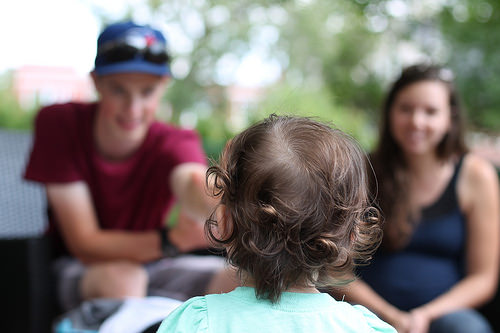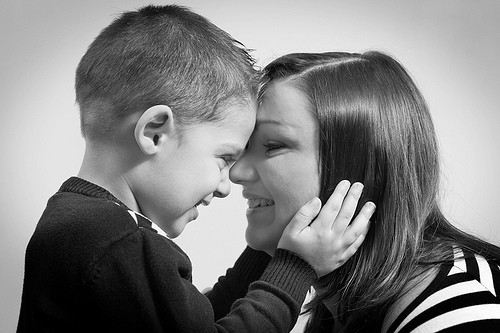10 Phrases We Should Never Say to Our Children

Words can mark a child’s life forever. That’s why it’s so important to know that there are certain things we should never say to our children, even when we’re upset.
As parents, we should be very careful with our words and watch what we say to our children, because inadequate phrases can have a permanent and powerful impact on their lives.
All words have consequences, some positive and others negative. In this article we will share with you phrases that you should avoid at all cost when it comes to addressing your children.
“Forbidden” words and phrases
-
“I’ll do it for you”
As a parent it is natural for you to want to take control of situations in order to make your child’s life easier by any means necessary. However, if you use this phrase when referring to their homework, chores or daily activities you might demotivate your children. It is better for you to help them while they are doing their tasks rather than simply do it all for them.
-
“Don’t cry”
Especially when it comes to boys, it is quite common to hear this phrase from some parents. Saying this isn’t healthy, as it teaches children to swallow their emotions. You should avoid reprimanding your children for expressing their feelings of sadness or frustration when they cry.
-
“Why aren’t you more like your brother or sister?”
Comparisons can be hurtful during all phases of life. Why should we use them to make our children feel bad? Replace these types of phrases with others that highlight their virtues and qualities. Praise things that make them unique as a person. They should feel that you respect and admire them as an individual.

-
“I promise”
It is not wise to use this phrase without having the intention or security to accomplish it. A broken promise made to a child is a sign that they cannot trust you as much as they thought they could. Use phrases such as “I’ll try” in order to prevent your child from getting more excited than they should.
-
Speaking badly about others
There are many phrases that can be used to degrade a person, and your child hearing you say such phrases can mark their future behavior. Remember that you are your child’s role model. They will imitate the things you do and say. If you want your children to talk to others with respect, you should start by leading by example.
-
“Because I said so”
This phrase is quite cliché and is used when parents don’t want to justify their actions. Try to avoid this phrase. It is better to give good arguments which explain your actions. Children will not find a reason to stop their misbehavior if they are not provided with a valid reason.
-
“Shut up”
This is a phrase that should not be used with anyone and especially not with your children. In addition to being rude, it threatens your child’s ability to express themselves. It also generates hostility. Instead of using this phrase you can point out to them in advance when they should keep quiet and when they are allowed to talk without hinders.
-
“You are so… (any adjective with a negative connotation)”
Parents sometimes say these phrases when they are upset, and these phrases are used to reinforce an unpleasant feeling towards their children. If a parent constantly uses these kinds of phrases, it can make their children believe them. These phrases should only be used to highlight their strengths and talents. This in turn will strengthen their self-esteem.

-
“You’ll see when your dad (or mom) gets home”
This is a phrase that is often used to announce punishment that dad or mom will establish when they get home. It is a sign of weak authority. It shows that you don’t know how to handle the situation. When behavior is left uncorrected at the time that it occurs, the child will forget what he did, and the punishment will not relate to the action. Using this phrase will also create a negative image about their father or mother, because it causes the child to become afraid of them.
-
“Leave me alone”
When this phrase is used frequently, your child may misinterpret it. They might start to believe that their simple presence annoys you. If you are feeling stressed out, you should warn them beforehand that maybe it is not the best moment to talk. When you feel better you can go back to them and enjoy some family time.
This text is provided for informational purposes only and does not replace consultation with a professional. If in doubt, consult your specialist.
